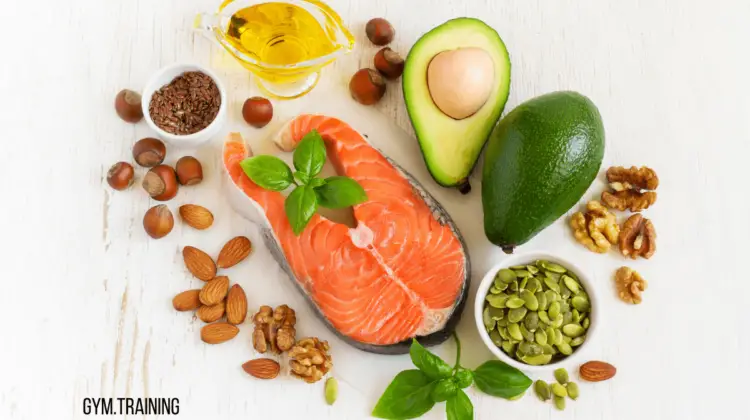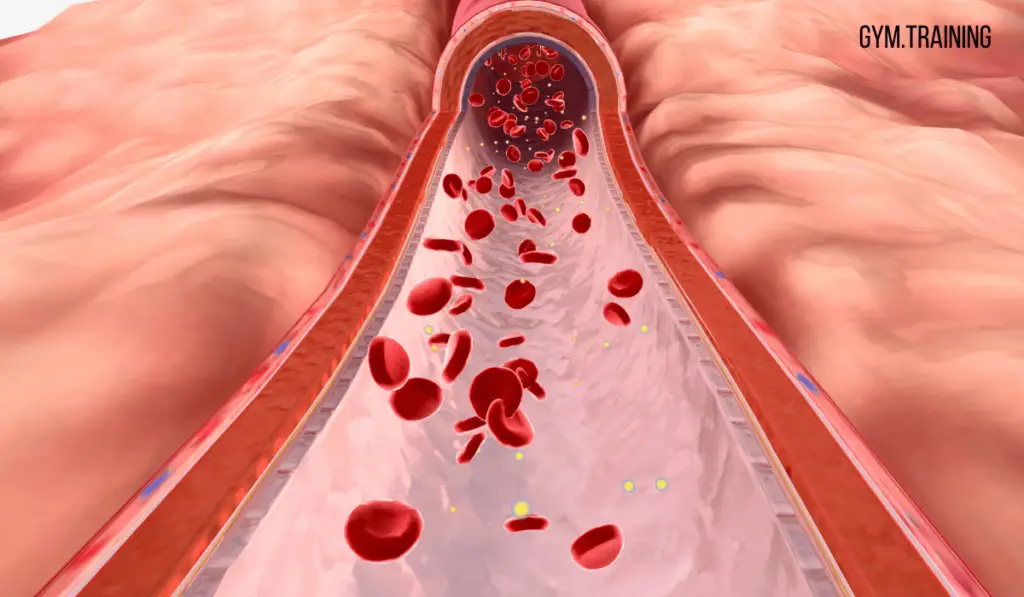
Fat is an essential component of the human body, playing various crucial roles in maintaining overall health and well-being. Understanding the different types of fats and their effects on the body is fundamental for making informed dietary choices and promoting good health.
Fats are often misunderstood and unfairly demonized in the realm of nutrition. While excessive fat consumption can indeed lead to health issues, not all types of fats are created equal. In fact, fats are essential nutrients that are vital for numerous physiological functions within the body.
What Are Fats?
Fats, also known as lipids, are macronutrients that serve as a concentrated source of energy. Chemically, fats are composed of carbon, hydrogen, and oxygen molecules. Unlike carbohydrates and proteins, fats are insoluble in water.
What Are Fats In Nutrition?
Functions of Fats in the Body
- Energy Storage: Fats serve as the body’s primary energy reserve, providing a readily available source of fuel during times of fasting or low food intake.
- Insulation: Adipose tissue, composed of fat cells, acts as an insulating layer beneath the skin, helping to regulate body temperature and protect internal organs from cold weather.
- Protection: Fats cushion and protect vital organs such as the heart, kidneys, and liver, providing a layer of padding that helps prevent injury from physical impact.
- Cellular Structure: Fats are essential components of cell membranes, contributing to their integrity and function. They also play a role in cell signaling and gene expression.
- Absorption of Fat-Soluble Vitamins: Fats facilitate the absorption of fat-soluble vitamins (A, D, E, and K) and other fat-soluble nutrients, ensuring their utilization by the body.
ALSO READ: 20 Must Have Drinks And Foods That Boost Metabolism Faster
Dietary Sources of Fats
Different types of fats are found in a wide variety of foods, both from animal and plant sources. Some common dietary sources of fats include:
- Animal-Based Fats: Meat, poultry, fish, eggs, and dairy products such as milk, cheese, and butter are rich sources of saturated fats and cholesterol.
- Plant-Based Fats: Plant oils (olive oil, coconut oil, avocado oil), nuts, seeds, avocados, and certain fruits like olives are abundant sources of unsaturated fats, including monounsaturated and polyunsaturated fats.
- Processed and Fried Foods: Many processed and fried foods contain unhealthy fats, such as trans fats, which are formed during the hydrogenation process used to solidify liquid vegetable oils. These fats are commonly found in commercially baked goods, margarine, fried foods, and snack items.
Types of Fats In Food And Body

1. Saturated Fats
Saturated fats are typically solid at room temperature and are commonly found in animal products such as meat, butter, cheese, and full-fat dairy products. They are also found in various plant-based oils, such as coconut and palm oil.
While saturated fats are not inherently bad, consuming them in excess can raise levels of LDL cholesterol in the blood, increasing the risk of heart disease and stroke. It’s essential to limit intake and opt for leaner sources of protein and low-fat dairy products.
2. Unsaturated Fats
Unsaturated fats are liquid at room temperature and are primarily found in plant-based oils, such as olive oil, avocado oil, and canola oil. They are also present in nuts, seeds, and fatty fish like salmon and trout.
Unsaturated fats are considered healthier options compared to saturated fats, as they can help lower LDL cholesterol levels and reduce inflammation in the body. Including more unsaturated fats in your diet can contribute to better heart health and overall well-being.
3. Trans Fats
Trans fats are the most harmful type of fat and are primarily found in processed and fried foods. They are created through a process called hydrogenation, which converts liquid vegetable oils into solid fats. Trans fats are often found in commercially baked goods, margarine, snack foods, and fast food items.
Consuming trans fats can raise levels of LDL cholesterol while lowering levels of HDL cholesterol, increasing the risk of heart disease, stroke, and type 2 diabetes. It’s crucial to read food labels carefully and avoid products containing trans fats whenever possible.
4. Monounsaturated and Polyunsaturated Fats
Monounsaturated and polyunsaturated fats are two types of unsaturated fats that are particularly beneficial for heart health. Monounsaturated fats are found in foods like olive oil, avocados, and nuts, while polyunsaturated fats are abundant in fatty fish, flaxseeds, and sunflower seeds.
These fats can help improve cholesterol levels, reduce inflammation, and lower the risk of cardiovascular disease when consumed as part of a balanced diet.
5. Omega-3 and Omega-6 Fatty Acids
Omega-3 and omega-6 fatty acids are essential fats that the body cannot produce on its own and must be obtained from food sources. Omega-3 fatty acids are found in fatty fish, walnuts, flaxseeds, and chia seeds, and are known for their anti-inflammatory properties and benefits for heart health.
Omega-6 fatty acids are abundant in vegetable oils like corn oil, soybean oil, and safflower oil, but excessive intake can lead to inflammation if not balanced with omega-3 fatty acids.
Health Implications of Different Types of Fats
The types of fats consumed can significantly impact overall health.
- Effects of Saturated Fats: High intake of saturated fats has been linked to an increased risk of cardiovascular disease, stroke, and obesity due to their ability to raise levels of LDL cholesterol in the blood.
- Benefits of Unsaturated Fats: Unsaturated types of fats, particularly monounsaturated and polyunsaturated fats, have been shown to improve cholesterol levels, reduce inflammation, and lower the risk of heart disease when incorporated into a balanced diet.
- Risks Associated with Trans Fats: Trans fats are considered the most harmful type of fat, as they not only raise LDL cholesterol but also lower HDL cholesterol, leading to an increased risk of cardiovascular disease, stroke, and type 2 diabetes.
Sources of Fats
- Foods Rich in Saturated Fats: 3 types of fats and examples include red meat, butter, cheese, and processed foods such as cakes, pastries, and fried foods.
- Sources of Unsaturated Fats: Avocados, nuts, seeds, olive oil, and fatty fish like salmon and mackerel are excellent sources of unsaturated fats.
- Foods Containing Trans Fats: Processed snacks, fried foods, margarine, and commercially baked goods often contain trans fats.
Impact of Fats on Health Conditions
- Heart Disease: A diet high in saturated and trans fats can contribute to the development of heart disease by raising cholesterol levels and promoting inflammation in the arteries.
- Obesity: While getting into types of fats, excessive consumption of calorie-dense foods rich in unhealthy fats can lead to weight gain and obesity, increasing the risk of various health issues, including type 2 diabetes and hypertension.
- Cholesterol Levels: Saturated and trans fats can elevate LDL cholesterol levels, while unsaturated types of fats have been shown to have a positive impact on cholesterol levels when consumed in place of unhealthy fats.
Tips for Managing Fat Intake
- Choose lean protein sources and opt for cooking methods like grilling, baking, or steaming instead of frying.
- Incorporate more plant-based fats such as avocados, nuts, and seeds into your diet.
- Limit the consumption of processed and fried foods high in trans fats.
READ UP NEXT: List Of Hormone Balancing Foods And Drinks
In conclusion, some types of fats are essential nutrients that play a vital role in maintaining overall health and well-being. By understanding the different types of fats and their effects on the body, individuals can make informed dietary choices to support their health goals.
Frequently Asked Questions
1. Are all fats bad for you?
Not all types of fats are bad for you. Healthy fats, such as unsaturated fats found in avocados and nuts, are essential for overall health when consumed in moderation.
2. What are some healthy sources of fats?
Avocados, almonds, seeds, olive oil, and fatty seafood such as salmon and mackerel are all healthy fat sources.
3. How much fat should I consume daily?
The American Heart Association recommends that various types of fats should make up no more than 20-35% of your daily calorie intake, with the majority coming from healthy sources.
4. Can fats be beneficial for weight loss?
Yes, certain type of fats, such as those found in avocados and nuts, can help promote feelings of fullness and satisfaction, which may aid in weight loss when consumed as part of a balanced diet.

Leave a Reply
You must be logged in to post a comment.